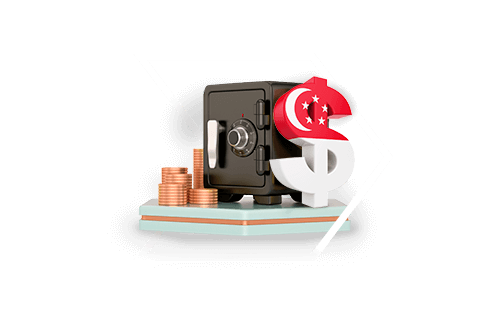{{tile.title}}
{{tile.description}}
{{tile.expiryDate}}

We will be right with you.
| Unit Trusts | ETFs |
REITs | |
|---|---|---|---|
Underlying investments |
A diversified basket of stocks, bonds, cash, etc., chosen by a fund manager. |
A portfolio designed to track a specific index, commodity, or sector. |
An investment vehicle that invests in real estate assets (e.g., shopping malls, office buildings, warehouses). |
| Management style | Fund managers actively buy and sell assets with the aim of outperforming the market. |
Track an index, commodity class or sector to replicate the performance of its constituents; i.e. passive management. |
Actively managed by a team that acquires and manages properties to generate revenue. |
| Cost structure | Will have management fees due to active management, but also the potential for higher returns. May come with upfront sales fee or a backend sales charge; depending on the fund. |
Lower expense ratios due to its passive nature. Brokerage fees apply when buying/selling. | Management fees and trustee fees. Brokerage fees apply when buying/selling. |
| Liquidity | Mostly highly liquid. In general, you can buy or sell units on any business day with your financial institution unless it’s a restricted liquidity fund | Highly liquid. You can buy or sell throughout the trading day on an exchange. | Highly liquid. You can buy or sell throughout the trading day on an exchange. |
| Funding options | Cash CPF, SRS (selected UTs only). |
Cash SRS, CPF (selected ETFs only). |
Cash SRS, CPF (selected REITs only). |
| How much you need to start investing | Depends on the fund, usually an upfront $1000 investment; thereafter most funds allow investors to make small, regular monthly contributions to purchase additional units. | Varies by ETF share price. Can be a few hundred dollars to thousand dollars per share. | Varies by REIT unit price and the required lots to fulfil the minimum investment requirement. |
| Who is it for | Investors who prefer a hands-off approach and want to engage professional expertise to navigate the market. | Investors who want broad market exposure at a low cost. | Investors seeking a stable income stream and exposure to the real estate market without direct property ownership. |
Important Notes & Disclaimer
{{tile.description}}
{{tile.expiryDate}}
Get access to a wide range of asset classes, and have your investments managed by Professional Fund Managers. Your risks will be spread out over a diversified portfolio.

Structured Deposits includes both deposit and investment elements. Your principal is guaranteed upon maturity, and potential returns are dependent on the performance of the underlying investment.

Enjoy attractive fixed interest rates across a wide range of tenor and deposits starting as low as S$1,000.
